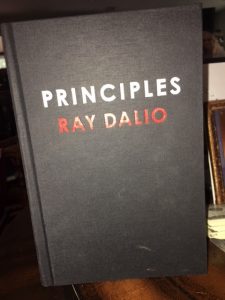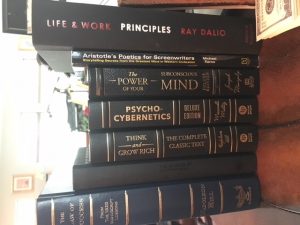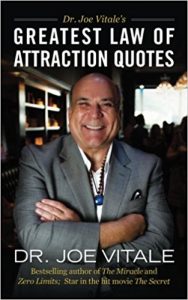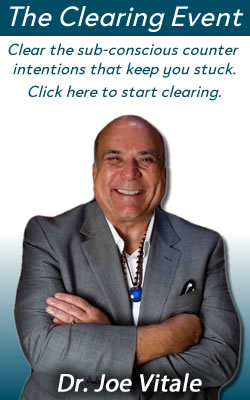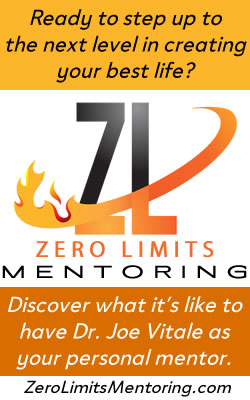Tag: principles
Principles of Ray Dalio
The best book I read in 2017 was probably Ray Dalio’s Principles.
I say ‘probably’ as I read a bookstore full of books a year, and many get lost in the shuffle of turning pages.
If a book stands out, I tweet about it.
If it really sits up and rolls over, I write a blog post about it.
Dalio’s Principles made the cut for 2017.
I don’t know Dalio personally and actually never heard of him at all before I read his book.
He’s a billionaire entrepreneur and investor. He’s highly respected and successful.
After a lifetime of paying attention to what works in business and life, he compiled his “Principles.”
Apparently they were first put online.
They were downloaded over three million times.
When his book came out in 2017, it went to #1 on the NY Times bestsellers list.
Why did I buy the book when I didn’t know Dalio or his work?
A strong intuitive nudge urged me to preorder it.
Something about the title just said, “Read this next.”
As I’ve learned to do, I acted on that impulse.
And I’m glad I did.
The book is huge at almost 600 pages.
And it’s packed with wisdom.
I felt I was reading a software manual for life.
While Dalio sometimes comes across as a computer programmer, he’s actually more of a keen observer of life. As he finds insights that hold true, he writes them down as Principles.
Underneath Dalio’s drive is a prime directive that basically reminds him that he doesn’t know it all.
But the combined mind power of others could help him see objective reality and make clearer decisions.
At his TED2017 talk, he says, “Rather than thinking, ‘I’m right,’ I started to ask myself, ‘How do I know I’m right?’”
I love this question.
“How do I know I’m right?”
I love it because it’s so easy to deceive ourselves with our own thinking.
We can be illogical and not even know it.
When I coach or consult people, I often hear them say things they don’t hear as limitations. Until they invite outside input, they will continue to believe their own limitations.
It’s because thought is circular until you invite objective input.
Dalio solved this quirk of human nature by creating a way to judge the merit of an idea.
You don’t judge the person or the situation.
You judge the idea.
He calls it idea meritocracy.
Finding the merit of an idea.
One of the most unforgettable passages in the hefty book is when Dalio is told he has to have his esophagus removed.
Remaining as detached as he could, he decides to measure the merit of that recommendation.
He finds four other medical experts.
They all openly share.
They agree to a retest.
The result is Dalio kept his esophagus and changed a few basic lifestyle habits.
But he may have lost it due to the first doctor had Dalio not questioned the merit of his recommendation and been open to other experts opinions.
There’s abundance in this book.
I’ve folded back pages and underlined passages.
There’s no way I can memorize all his material. I have to keep a few basic principles in mind, such as –
“Reality is optimizing for the whole – not for you.”
“Pay attention to people’s track records.”
“Make your passion and your work one and the same and do it with people you want to be with.”
“Train your ‘lower-level you’ with kindness and persistence to build the right habits.”
“Almost nothing can stop you from succeeding if you have (a) flexibility and (b) self-accountability.”
Those principles seem stark and naïve sitting alone on the page.
Of course, those are only a handful of his principles and you’ll need to read his book to understand them.
But the book is friendly, easy, deep, and unforgettable.
Out of the thousands of books I’ve read and still own, only a handful make it to my desk, sitting at arms reach, to be seen or grasped at will.
They include legends, like Napoleon Hill’s Think and Grow Rich and Maxwell Maltz’s Psycho-Cybernectics.
Today I am placing Ray Dalio’s Principles in that little lineup of success classics.
Ao Akua,
Joe
PS – See my “Best Books Ever” list of 2015 at https://www.mrfire.com/law-of-attraction/best-books-ever/ for a sense of the books I read and like.

